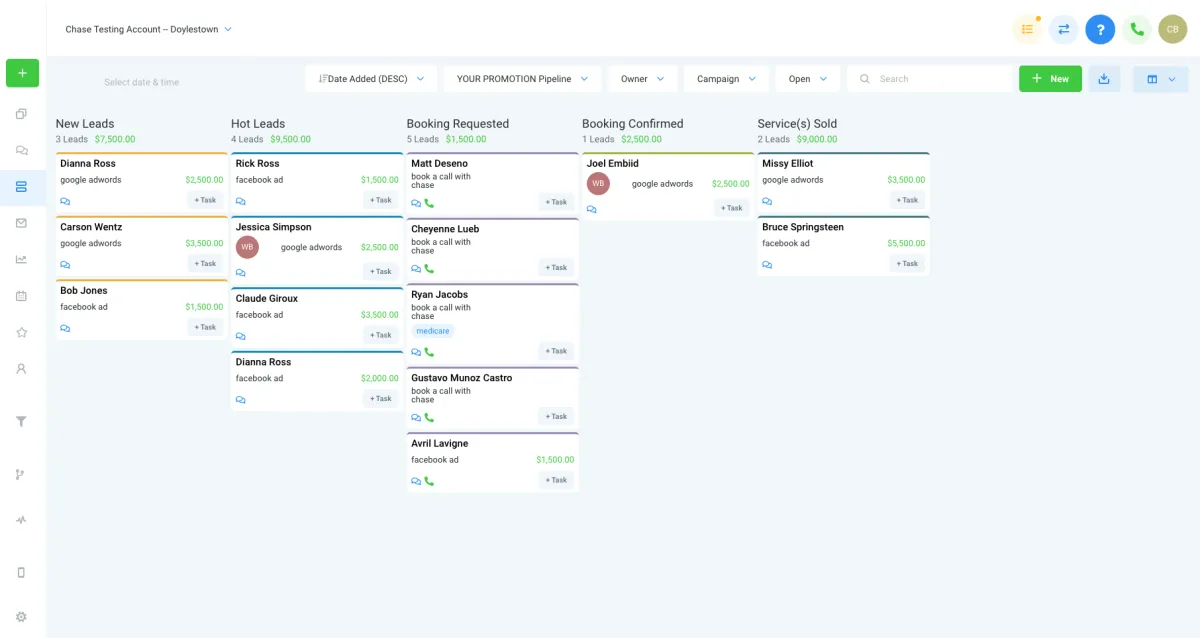
Maximizing CRM Efficiency: Best Practices for Automated Customer Engagement
"The impediment to action advances action. What stands in the way becomes the way."
— Marcus Aurelius
Customer Relationship Management (CRM) systems have become a cornerstone for businesses across various industries. From small startups to large enterprises, CRMs provide an essential framework to manage customer interactions, streamline processes, and drive growth.
Why CRMs are Useful Across Industries:
Centralized Customer Data:
One of the primary benefits of a CRM is its ability to centralize all customer data in one place. This includes contact details, purchase history, communication records, and preferences. For industries like retail, healthcare, finance, and B2B services, having a single source of truth allows teams to deliver personalized experiences, leading to improved customer satisfaction and loyalty.
Improved Communication and Collaboration:
CRMs facilitate better communication both within the company and with customers. Teams across sales, marketing, and customer service can access up-to-date information, ensuring everyone is aligned and working toward the same goals. In sectors like real estate and insurance, where customer interactions are frequent and varied, this level of coordination is invaluable.
Automation of Repetitive Tasks:
One of the standout features of modern CRM systems is automation. Tasks such as sending follow-up emails, scheduling appointments, and updating records can be automated, freeing up valuable time for employees to focus on more strategic activities. For example, in industries like e-commerce and hospitality, automation helps maintain high levels of engagement without the need for constant manual effort.
Data-Driven Decision Making:
CRMs provide powerful analytics tools that help businesses understand customer behavior and measure the effectiveness of their strategies. Whether it’s tracking sales performance, monitoring customer satisfaction, or analyzing marketing campaigns, data-driven insights enable businesses to make informed decisions that drive growth. This is particularly crucial in industries like finance and tech, where staying ahead of market trends can be the difference between success and failure.
Enhanced Customer Retention:
Retaining existing customers is often more cost-effective than acquiring new ones. CRMs help businesses identify at-risk customers, set up automated retention campaigns, and monitor customer feedback. In subscription-based industries such as SaaS, media, and telecommunications, this proactive approach to customer retention is a game-changer.
Scalability and Flexibility:
Modern CRM systems are designed to scale with a business. They offer customizable workflows, integrations with other tools, and the flexibility to adapt to changing business needs. This makes them suitable for a wide range of industries, from healthcare and education to manufacturing and logistics.
Conclusion:
CRMs are not just tools for managing contacts—they are powerful systems that, when leveraged correctly, can transform how a business operates. By centralizing data, enhancing communication, automating tasks, and providing actionable insights, CRMs help businesses build stronger relationships with their customers and drive long-term growth.
As Marcus Aurelius suggests, what seems like a challenge—managing vast amounts of customer data and interactions—can become an opportunity to advance action and growth when approached correctly.
